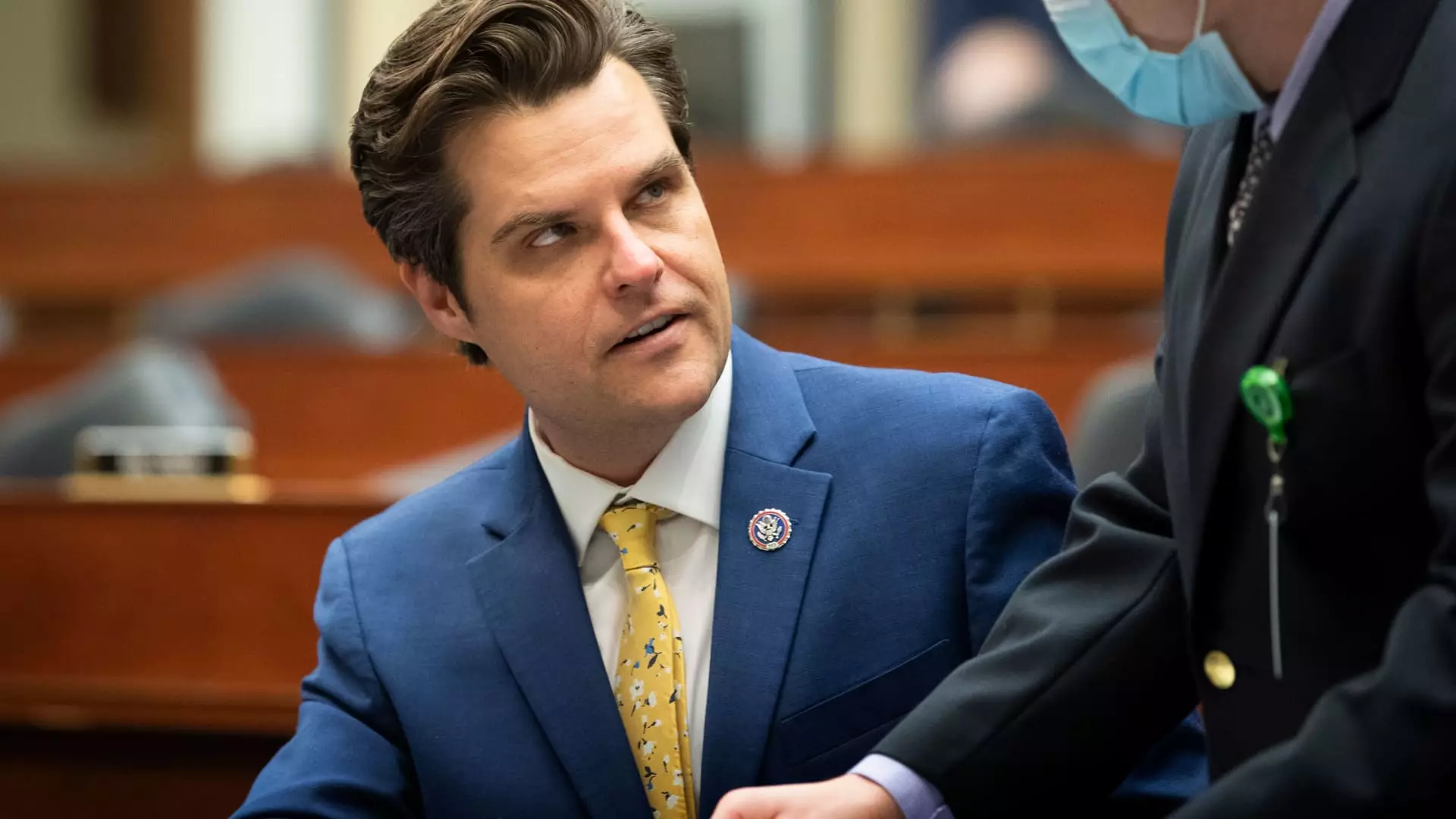The House Ethics Committee’s decision to vote on releasing a report regarding former Republican Representative Matt Gaetz has reignited discussions surrounding the intersection of politics, ethics, and accountability. NBC News broke the story, indicating that the report, which centers on serious allegations including sexual misconduct and illicit drug use, may be made public shortly after Congress concludes its legislative session for the year. This development underscores not only the lingering controversies surrounding Gaetz but also the committee’s shift in approach to matters of ethical evaluations post-resignation.
The implications of this vote are significant. Coming on the heels of Gaetz’s dubious withdrawal from the U.S. attorney general nomination due to a cloud of allegations, the imminent release of this report signals a potential re-evaluation of political conduct standards in Congress. Such a transition reflects the bipartisan committee’s responsibility to maintain integrity and public trust, particularly in a climate rife with skepticism about elected officials’ accountability.
In response to the news, Gaetz has maintained a vehement defense of his actions, adamantly denying any inappropriate behavior with minors. His public statements via social media platforms reveal a mixture of indignation and offense at the allegations levied against him. Claims that he has “partied” excessively are met with a nonchalant acknowledgment of past indiscretions, which he frames as non-criminal and reflective of a flawed youth.
Gaetz’s rhetoric, asserting his “full exoneration” from any charges, may resonate with his supporters who view the investigations as politically motivated attacks. However, the absence of formal charges from the Department of Justice does not wholly absolve the former congressman from ethical scrutiny. His insistence on defending his actions suggests an attempt to reshape public narratives around his character as the investigation draws renewed attention.
The House Ethics Committee, responsible for overseeing the conduct of its members, has faced scrutiny for its handling of this investigation since it was initially paused during the DOJ’s inquiry. Recent actions to reignite the investigation imply a reckoning with past behavior, notwithstanding Gaetz’s departure from Congress. The committee’s role transcends immediate party affiliations; it seeks to uphold standards that, if left unchecked, threaten the foundations of legislative integrity.
The committee’s bipartisan nature can sometimes complicate proceedings, and the recent vote to release the report, despite Gaetz’s exit, raises questions about procedural norms and ethical obligations. While previous instances exist of the committee releasing findings post-resignation, such as the notable case involving Rep. Bill Boner in 1987, each case carries its own context and implications for public trust in governance.
A Precedent for Future Accountability
The anticipated release of the report not only impacts Gaetz but may also set a precedent for how future allegations against current or former members of Congress are addressed. It stimulates discussions around whether ethics investigations should continue after a member has left the House and how to balance such inquiries with the rights of individuals no longer serving in office. Here, we witness a tension between the need for accountability and the potential for politically motivated witch hunts.
House Speaker Mike Johnson’s concerns regarding the “terrible precedent” of releasing the report bring yet another layer of complexity to the dialogue—one that navigates between ethical standards and party loyalty. It speaks volumes about the environment within which congressional conduct is regulated, as well as the challenges that arise when personal and public interests collide.
The investigation into Matt Gaetz serves as a microcosm of broader themes surrounding ethics, responsibility, and political discourse in modern governance. As the House Ethics Committee prepares to release its findings, the political sphere holds its breath to see how this report will influence perceptions of accountability among lawmakers. In an era where public trust in institutions is often teetering, how the committee navigates this terrain will be pivotal in shaping the future of ethical governance in Congress.


Leave a Reply